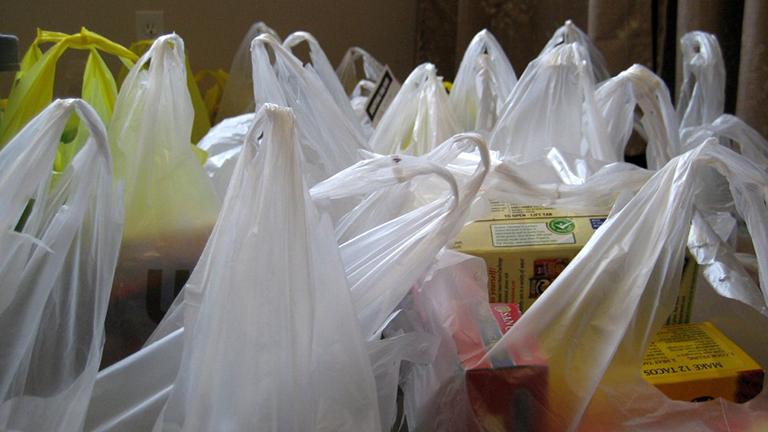By John Spina
Jackson Hole News&Guide
Via Wyoming News Exchange
JACKSON — With a biodegradable life span of 500 to 1,000 years, every piece of plastic ever made still exists in some form unless it was incinerated. With the average American throwing out 185 pounds of plastic each year, it has become a truly pervasive material.
Just last week researchers found a plastic bag at the bottom of the Mariana Trench, the world’s deepest point, 36,000 feet beneath the ocean.
In an attempt to slow Teton County’s contribution of nearly 3 million pieces of plastic each year, the Jackson Town Council directed its staff to draft an ordinance banning single-use plastic bags within the town, as well as instituting a nominal fee for paper bags.
Though Jackson considers itself a leader in conservation, until last night it had fallen behind in this regard — even China and Ethiopia enacted plastic bag bans before Jackson — not to mention its peers in mountain towns across the West including Aspen, Vail and Telluride, Colorado, and Park City, Utah.
Many of the public commenters suggested the council immediately implement a ban and even take the ordinance a step further and identify other types of plastics to outlaw.

“As a community we pride ourselves on being a leader in mountain towns and try to set a good example, but we are slacking on this,” said Ashley Watson, owner of Mountains of Groceries, a home grocery delivery service operating in Jackson since 2006. “I think we can do better and make a difference if we start with plastic bags and move to straws, move to forks, Styrofoam, and really make our community a leader in this situation.”
The Town Council raised the issue in 2011, around the same time many other mountain towns began to consider a ban. But the move was quashed due to concerns it would hurt local businesses, as well as lower-income families that would struggle to afford a bag fee.
Many of those concerns, however, have been addressed in other communities as they rolled out their version of a plastic bag ban. Using these examples, the town’s staff said it would present the council with a number of options moving forward.
“I think this is a good first step,” Councilman Jim Stanford said. “Given all the experiences all the other communities went through it should be fairly easy to implement, and I trust that staff will bring back some good options.”
Staff found that the four most common ways of structuring the ban include: a straight ban on plastic bags that allows compostable plastic and paper bags; a ban on compostable and traditional plastic bags while allowing recyclable paper bags; a ban on plastic and compostable plastic bags, with a fee for recyclable paper bags; or simply charging a fee for all plastic and recycled paper bags.
Cities that have instituted a ban have seen fiscal and environmental results.
After imposing a 10-cent bag charge, San Jose, California, saw the number of plastic bags in storm drains decrease by 89 percent, in rivers and streams by 60 percent and in city streets by 59 percent. In Portland, Oregon, the use of reusable shopping bags tripled.
To mitigate negative effects on businesses, some cities have targeted their ban, prohibiting plastic bags or imposing a charge only for grocery or liquor stores that use a disproportionately high number of plastic bags.
Other communities, like Bisbee, Arizona, phased in their ban, giving businesses time to adjust.
Town of Jackson staff recommended the council approve a town-wide ban on single-use plastic bags and a small fee for paper bags, the money from which would go to Integrated Solid Waste and Recycling to fund education, outreach, and the provision of reusable bags, especially to low-income families.
There has been pushback against plastic bag bans in nearly every city and state that has considered one, including Idaho, which approved legislation in 2016 that prohibited plastic bag bans. But the Colorado Supreme Court ruled that the 20-cent fee charged for plastic bags in Aspen was constitutional and was not a sin tax. Since it was enacted in 2012 the fee has generated nearly $300,000 for the town of Aspen.
The Jackson Town Council seems determined to address the issue and reduce Teton County’s plastic use.
“Let’s get it done,” Councilman Don Frank said. “We don’t just have a commitment, we have a requirement to be leaders.
“Leaders lead by taking action,” he said. “This action is long overdue.”





